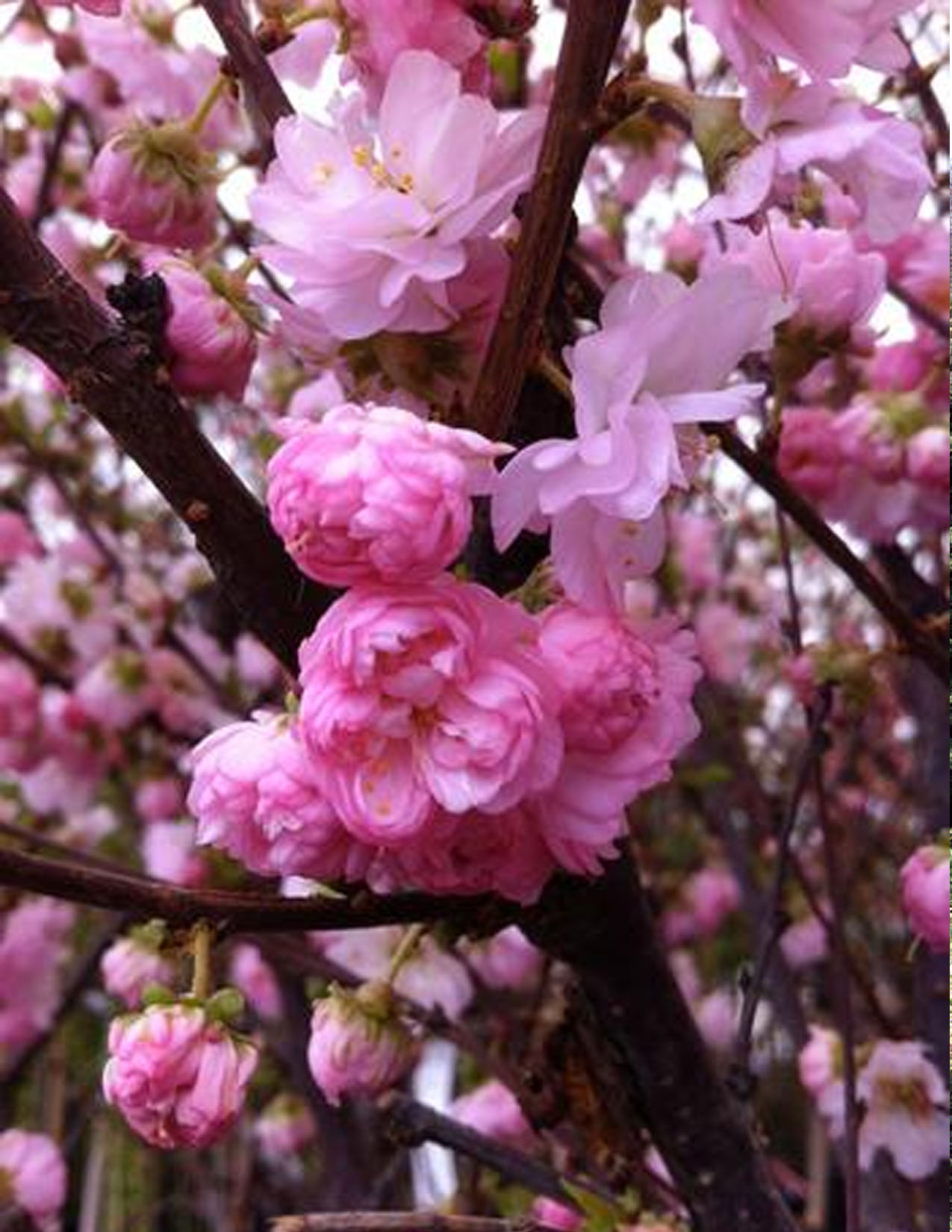
Prunus triloba var. 'Multiplex' STG Amandier de Chine sur tige Les Plantations Létourneau
Flowering almond, or double flowering plum ( Prunus triloba ), is a deciduous tree with gorgeous spring flowers blooming pink with double petals. This medium growing Rosaceae family member is a lovely addition to accent shrub borders around parking lots, strip plantings, or around a deck or patio.

Prunus triloba 'Multiplex', Babarózsa Tájkertész
About Coreopsis. Botanical Name: Coreopsis grandiflora. Common Name: Tickseed. Plant Type: Herbaceous perennial. Size: Grows 1.5 feet to 2.5 feet tall and 1 to 1.5 feet wide. Sun: Full sun. Water: Dry to medium, drought-tolerant. Bloom Time: Late spring to summer. USDA Zone: Zones 4 to 9.

Prunus triloba Multiplex Amandier de Chine aux pompons rose tendre
Coreopsis verticillata, commonly called threadleaf coreopsis or whorled coreopsis, is a rhizomatous perennial which typically grows in dense, bushy clumps to 1-3' tall. Features yellow, daisy-like flowers (1-2" diameter) with yellow untoothed rays and yellow center disks. Flowers appear singly in loose clusters (cymes) in a profuse and lengthy.
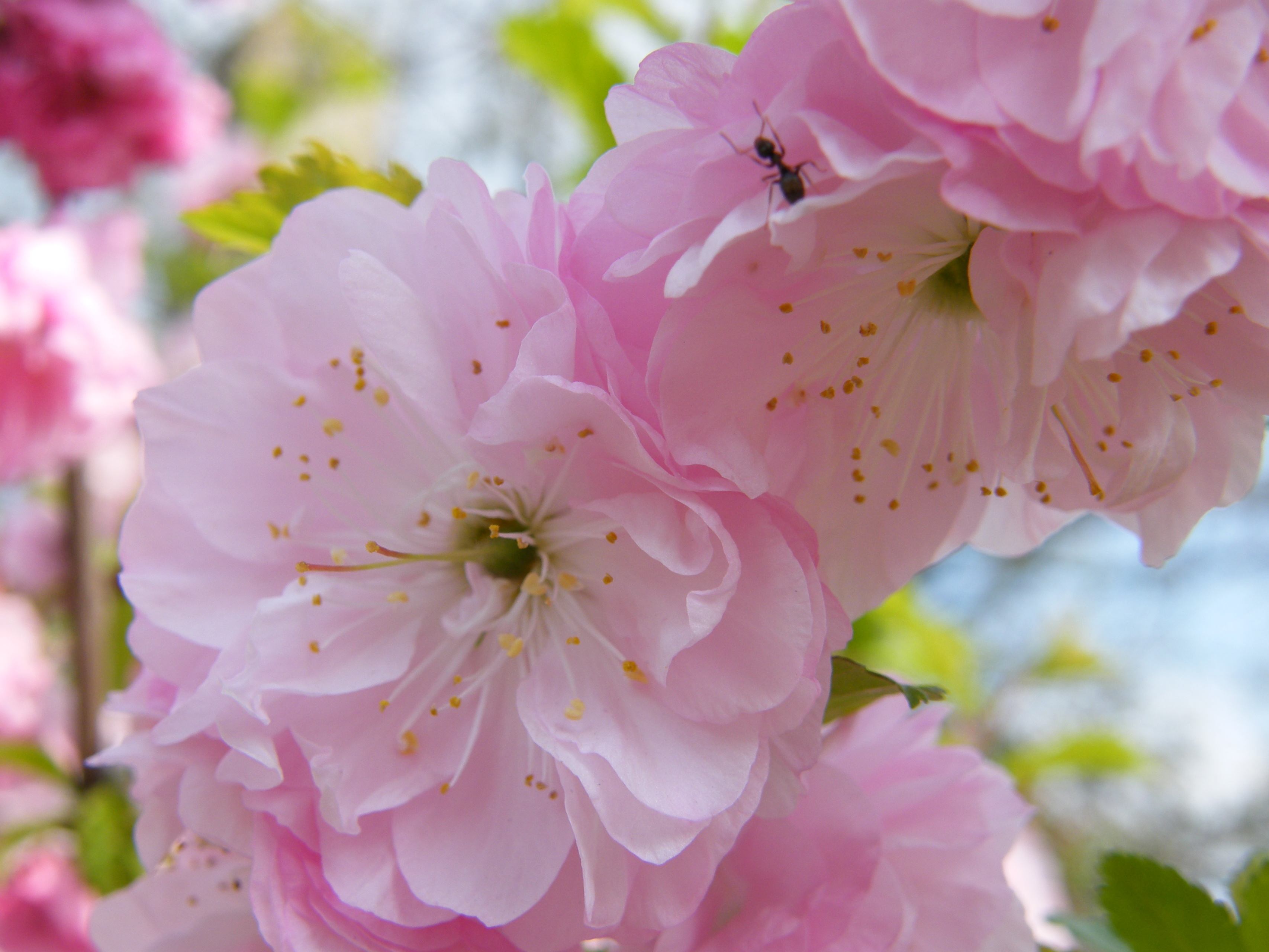
Double Flowering Plum (Prunus triloba 'Multiplex')
Prunus triloba var. multiplex Double-flowering almond Alternate, simple, and obovate to sometimes broad elliptic, the 1 1/2 - 2 1/2" leaves are coarsely serrate with a hint of 2 additional lobes, hence the name, triloba. The leaves have only a small amount of pubescence below.

Double Flowering Plum 'Multiplex' (Prunus triloba) My Garden Life
Family: Rosaceae Zone: 3 to 7 Height: 10.00 to 15.00 feet Spread: 10.00 to 15.00 feet Bloom Time: April Bloom Description: Pink Sun: Full sun to part shade Water: Medium Maintenance: Medium Suggested Use: Hedge, Flowering Tree Flower: Showy Attracts: Birds, Butterflies Fruit: Showy Garden locations Culture
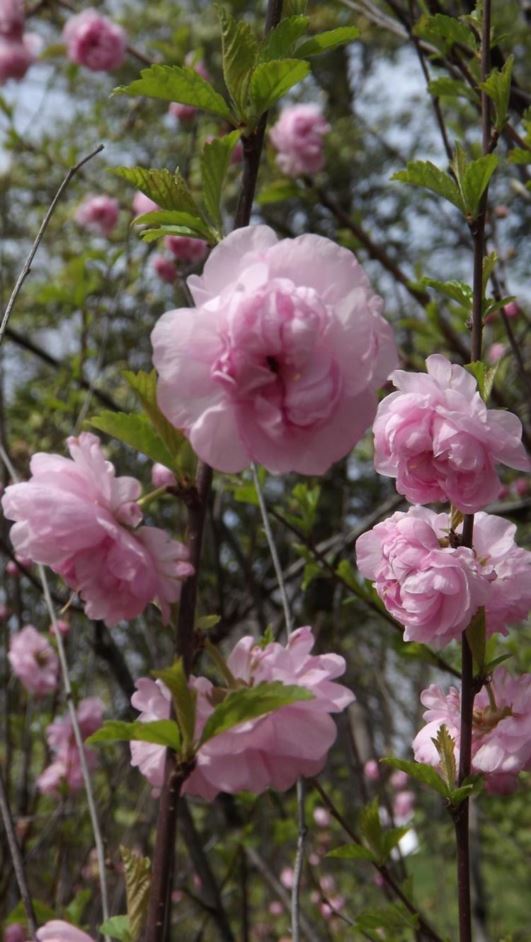
Prunus triloba 'Multiplex' double flowering almond The Dawes Arboretum
Prunus triloba, sometimes called flowering plum [2] or flowering almond, a name shared with Prunus jacquemontii, [3] is a shrubby cherry, sometimes becoming a small tree. The flowers are pale pink or white, [3] and the fruit are red and "pubescent", i.e. with soft hair. It originates from China but is popular around the world as an ornamental.
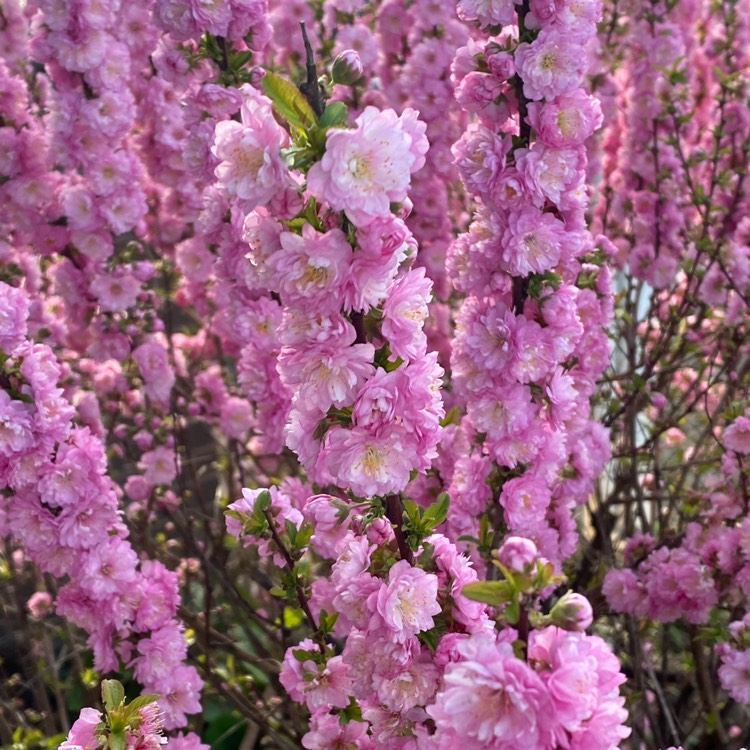
Prunus triloba 'Multiplex', Flowering Almond 'Multiplex' uploaded by vivo44
Prunus triloba 'Multiplex' Pot size #1, 2, 5 One of the showiest of all garden shrubs when in bloom, this tall spreading shrub becomes a uniformly frothy cloud of double pink flowers in early spring; bears no fruit, makes a wonderful specimen or garden shrub; needs full sun and well-drained soil.
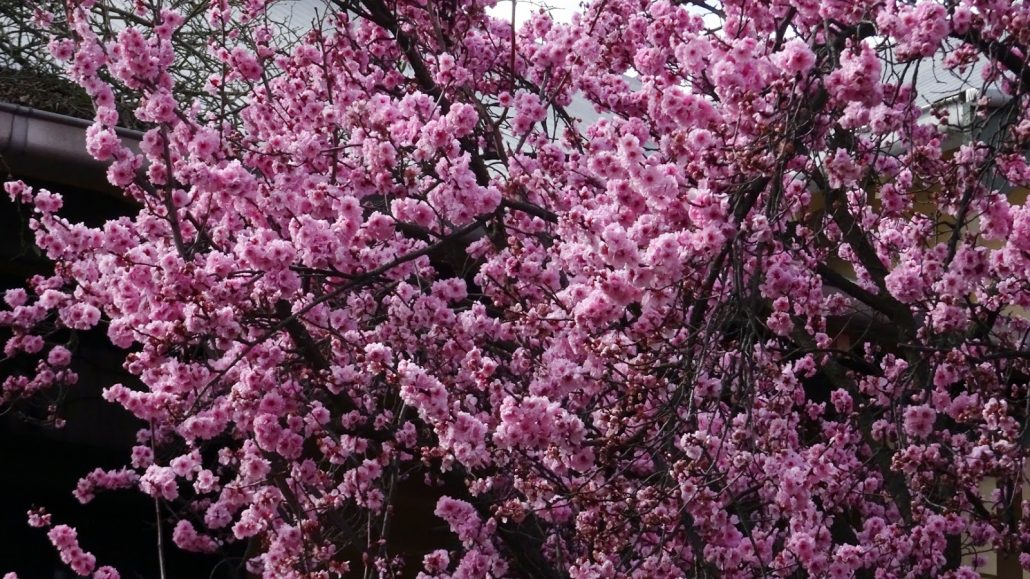
Prunus triloba Multiplex Centre Jardin Lac Pelletier
DESCRIPTION Height: 10 to 15 feet Spread: 10 to 15 feet Crown uniformity: symmetrical canopy with a regular (or smooth) outline, and individuals have more or less identical crown forms Crown shape: round; vase shape Crown density: moderate Growth rate: medium 1.

Prunus triloba 'Multiplex', Babarózsa Tájkertész
Prunus triloba var. multiplex - Flowering Almond. Flowering Almond Prunus triloba 'Multiplex' Very double pink flowers emerge simultaneously with the leaves; Medium-green leaves, occasionally three-lobed; Round, vase-shaped habit; Bloom Time: April; ZONE: 2. COLOUR: Pink HEIGHT: 200-250 cm. SPREAD: 200-250 cm. Size Available
Le Jardin de la Salamandre Prunus triloba 'Multiplex'
Prunus triloba, or Flowering Almond Tree, is a small deciduous tree or shrub that bears small pink double flowers in Spring. 'Multiplex' has double pink flowers. Does not bear fruit. plant Features. Full sun to partial shade. Occasional watering. Full Frost Hardy: 5F (-15°C) Free draining and fertile.
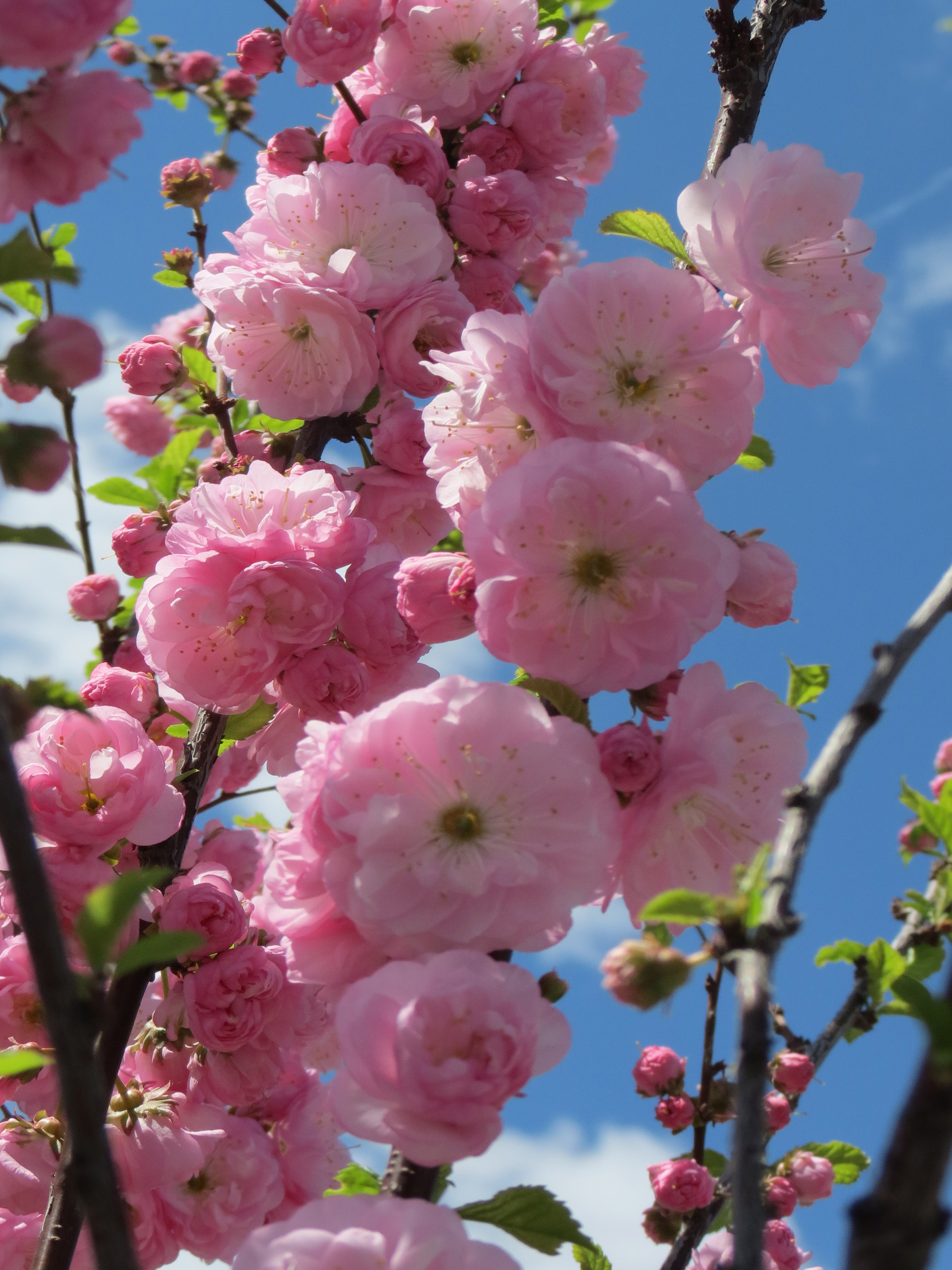
Prunus triloba var. 'Multiplex' STG Amandier de Chine sur tige Les Plantations Létourneau
Trees Shrubs Prunus triloba 'Multiplex' (d) flowering almond 'Multiplex' A densely branched, deciduous shrub or small tree to 3m in height, with dark green, often three-lobed, leaves, turning yellow in autumn. Double, rosette-like, peachy-pink flowers 4cm across, appear on bare branches in mid-spring Join the RHS today and save 25% Join now < >
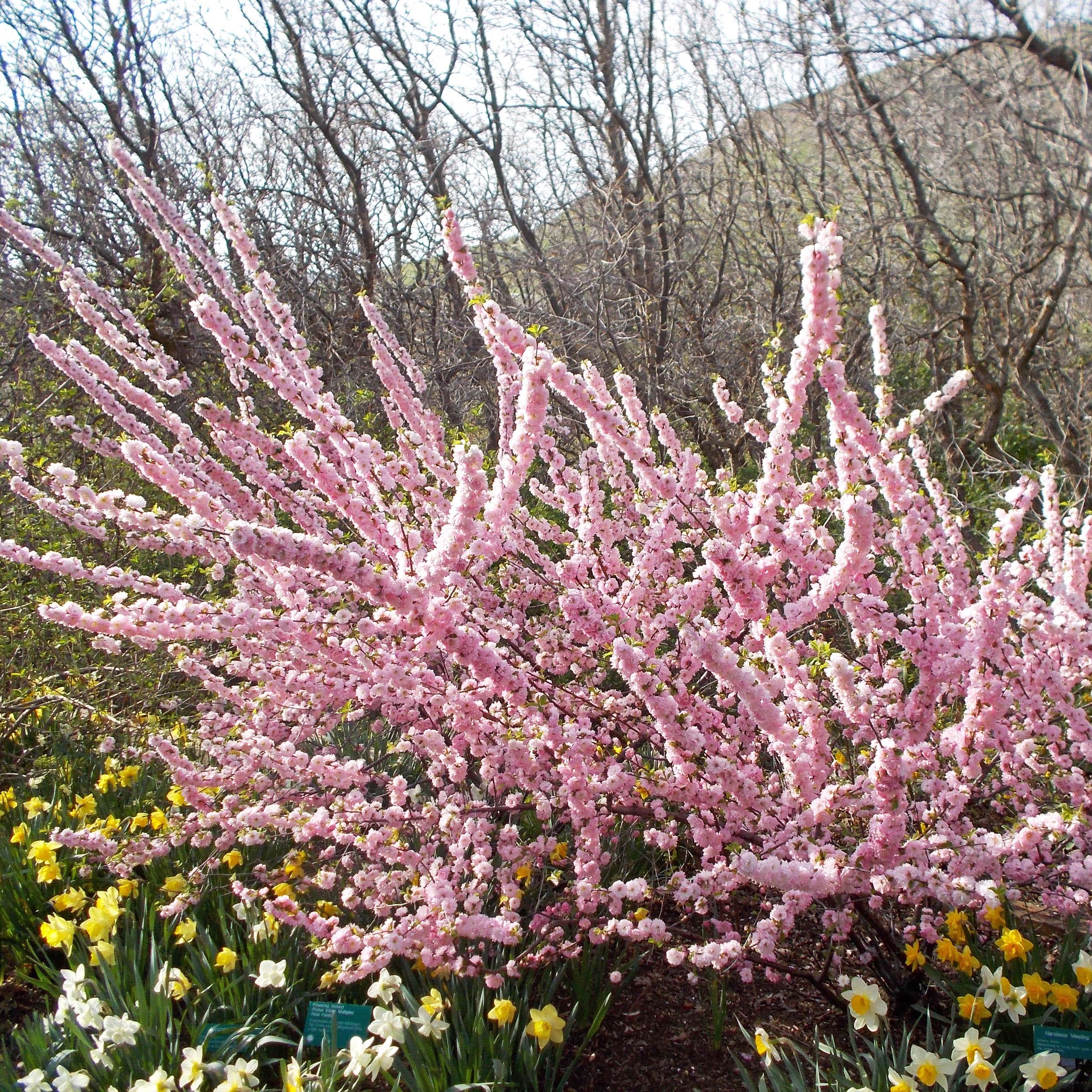
Prunus triloba Multiplex Amandier de Chine aux pompons rose tendre
Prunus triloba. Common names: flowering almond, flowering plum, rose tree of China All pictures (3) Share; All pictures. Content Detail.. (Prunus triloba var. multiplex): This is a showy double-flowered form that does not produce fruit. Find on the Map. Spencer Campbell. Plant Clinic Manager.

Prunus Triloba Multiplex Ciresul Japonez Pitic 3G Garden
Features An ornamental species prized for its cold tolerance and lavish display of flowers in the spring. The double-petaled blooms literally cover the bare spring branches just before the foliage emerges. If pruning is needed wait until just after the flowering period ends. Uses Makes a breathtaking specimen plant.
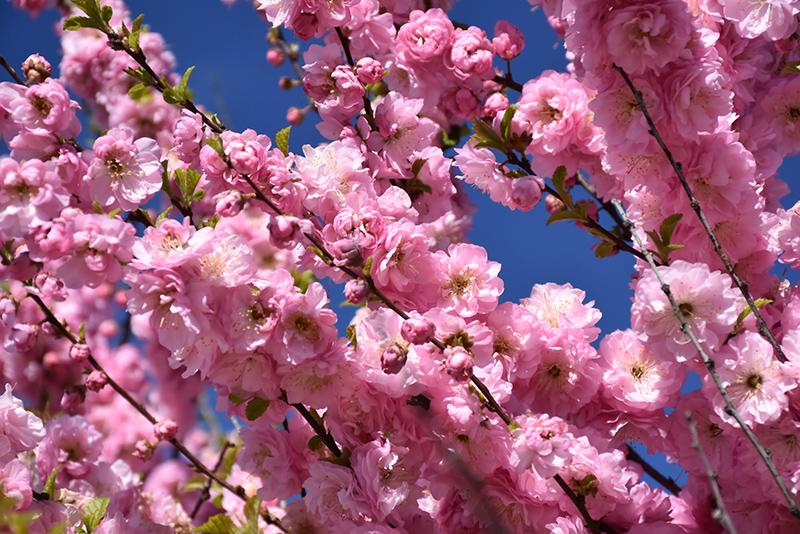
Double Flowering Plum (Prunus triloba 'Multiplex') in Edmonton St Albert Sherwood Park Stony
Prunus 'Multiplex' (Prunus triloba 'Multiplex') Care Guide. Prunus 'Multiplex' is a genus of flowering fruit trees that includes almonds, cherries, plums, peaches, nectarines, and apricots. These are often known as "stone fruits" because their pits are large seeds or "stones." When prunus trees are damaged, they exhibit "gummosis," a condition in which the tree's gum (similar to sap) is.
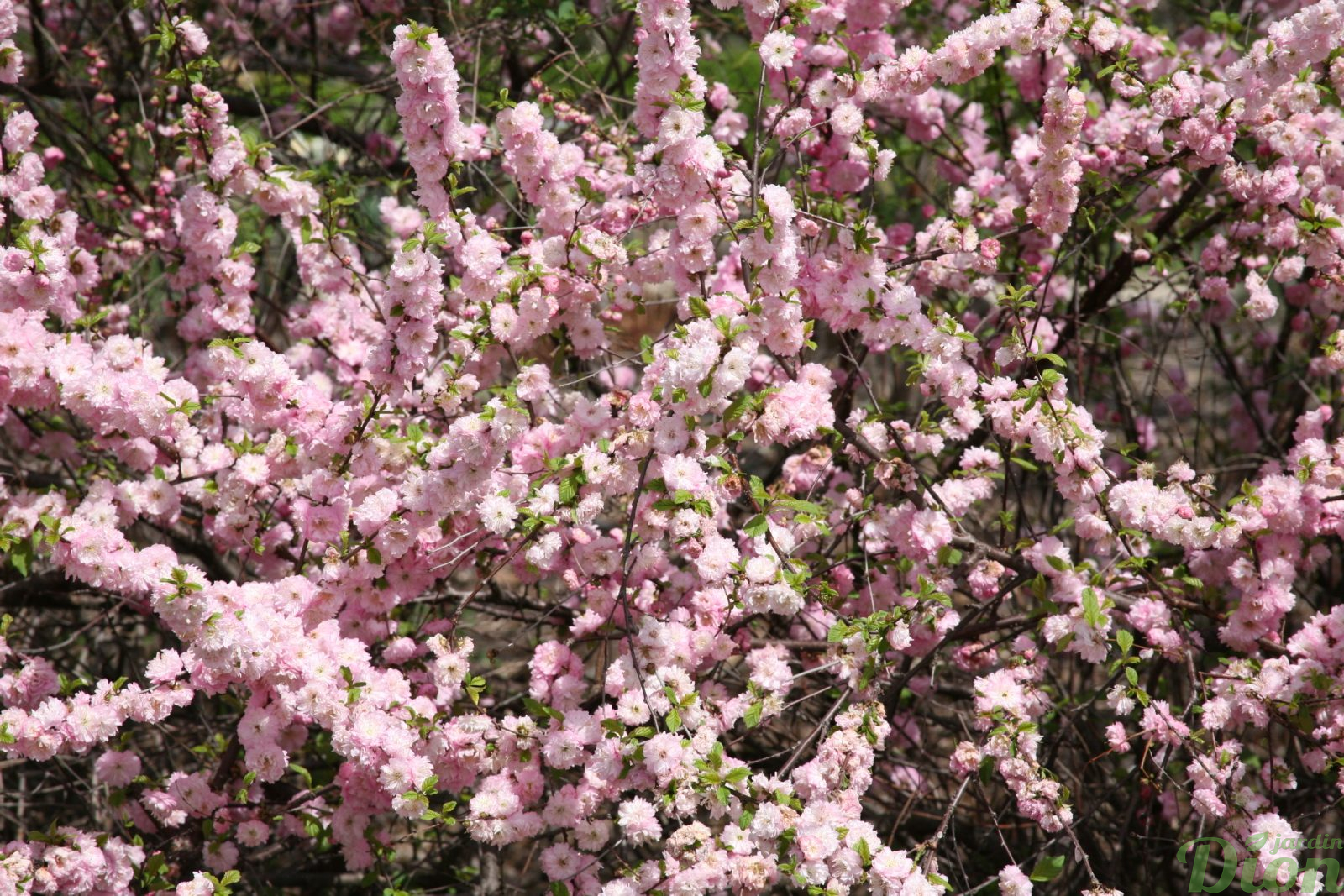
prunus triloba multiplex Jardin Dion
General Information Scientific name: Prunus triloba var. multiplex Pronunciation: PROO-nus try-LOW-buh variety MULL-tih-plecks Common name (s): Flowering-Almond, Double-Flowering Plum Family: Rosaceae USDA hardiness zones: 3B through 6B (Fig. 2) Origin: not native to North America Invasive potential: little invasive potential

Prunus triloba ‘Multiplex’ Centre de Jardin Barbe
'Multiplex' flowers 1{1/2} in. across, of a delicate rose, very double. leaves more obovate than in the type, often more or less three-lobed towards the apex. a.g.m. 1935.Prunus triloba is a native of China, and the double-flowered variety was introduced by Fortune in 1855; it was upon this that Lindley founded the name.It is the most popular.